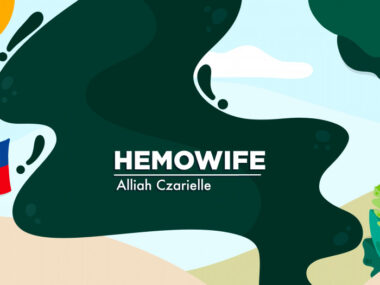My spouse has hemophilia, but I prefer not to call myself a caregiver
A columnist explains why the term doesn't resonate with her
Written by |

I’ve been writing about life with my husband, Jared, who has severe hemophilia B and epilepsy, for many years now. In doing so, I’d often refer to myself as a caregiver in passing. But here’s something that might surprise you: This column is the first time I’m openly acknowledging just how uncomfortable I’ve always been with that word.
It’s a term I hear often in Jared’s hemophilia organization — usually in reference to parents of young kids with bleeding disorders, but sometimes extended to spouses and other family members, too. And while I don’t take issue with it in a purely medical or logistical sense, I’ve never quite seen myself in that role.
The weight of a word
There’s so much packed into those nine letters. When I hear “caregiver,” I picture someone whose entire world revolves around another person’s needs. Someone who selflessly gives, often at the expense of their own time, space, and identity. I imagine medication schedules, sponge baths, physical therapy sessions. Total devotion.
That’s not us. That’s not me.
Yes, I help Jared when he bleeds. I drive for our family because his epilepsy disqualifies him from doing so. I’ve learned to spot the signs of an incoming seizure and what to do when it strikes, and we’ve trained our daughter to do the same. I’m familiar with the process of acquiring factor from charitable organizations, which is the norm here in the Philippines. But none of these actions define our relationship — just as Jared bringing me my favorite coffee each morning, reading bedtime stories to our daughter, and hanging up our laundry doesn’t define his role.
The word “caregiver” suggests a one-way relationship: one gives, the other receives. But that’s never been our dynamic. What we’ve built is far more reciprocal than that.
Jared and I aim to be partners in the truest sense. We make medical decisions together. We raise our daughter together. We handle bills, do laundry, and argue about what show to binge next — together.
When his hemophilia flares up, I step in a little more. When my attention-deficit/hyperactivity disorder gets the best of me, he picks up the slack without a word. We move in rhythm. We adjust for each other’s limits. That’s not caregiving. That’s partnership.
The expectations trap
Maybe what makes me most uneasy about the caregiver label is the weight of expectations it carries. Society tends to put caregivers on a pedestal — as if they’re saints immune to frustration or exhaustion. But I’m not a saint. I’m a woman who loves her husband. An imperfect human being, too.
I get tired. I get anxious sometimes about the thought of putting plans on hold because of sudden bleeds. And yes, sometimes I feel a twinge of jealousy toward couples who seem to breeze through milestones we’ve had to postpone — simply because illness forced us to hit pause. And then there are moments when all I really want is to be the one who’s cared for.
When the world sees you as a caregiver, those feelings can feel like failures. But they’re not. They’re real, valid, and part of the complexity of living alongside chronic illness.
A more honest language
These days, I think of us as co-caregivers — not in the traditional medical sense, but in relation to the emotional and practical work of holding each other up. When Jared needs treatment, we handle it as a team. When I’m spiraling from sensory overload, he calms me down and helps me with overwhelming tasks. We each have needs. We each meet them, in our own way.
That framing feels more honest. More balanced. It allows for both strength and vulnerability, without casting either of us in a permanent role.
I know some couples feel empowered by the caregiver-patient dynamic — and that’s completely valid. But for us, choosing not to define ourselves that way has made room for something even more meaningful: a relationship where care flows in both directions, where our identities remain intact, and where illness doesn’t write the script for how we love.
So, no, I’m not Jared’s caregiver. I’m his wife. His co-parent. His business partner, his teammate, his friend. And sometimes, yes, his nurse.
He’s my husband. My anchor when I feel like I’m drifting. My morning coffee hero. The one who believes in me when I forget how.
It’s messy and real and deeply human. And that, to me, feels healthier than any label ever could.
Note: Hemophilia News Today is strictly a news and information website about the disease. It does not provide medical advice, diagnosis, or treatment. This content is not intended to be a substitute for professional medical advice, diagnosis, or treatment. Always seek the advice of your physician or another qualified health provider with any questions you may have regarding a medical condition. Never disregard professional medical advice or delay in seeking it because of something you have read on this website. The opinions expressed in this column are not those of Hemophilia News Today or its parent company, Bionews, and are intended to spark discussion about issues pertaining to hemophilia.



Leave a comment
Fill in the required fields to post. Your email address will not be published.